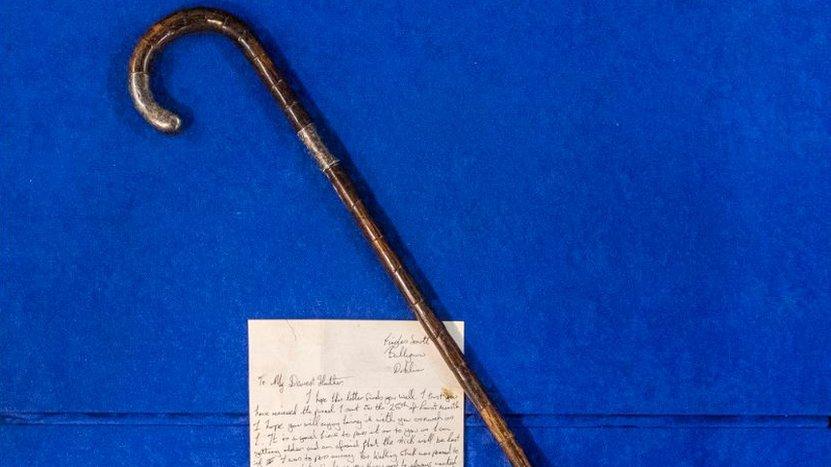Emmet Dalton: From Michael Collins' right hand man to movie producer
- Published
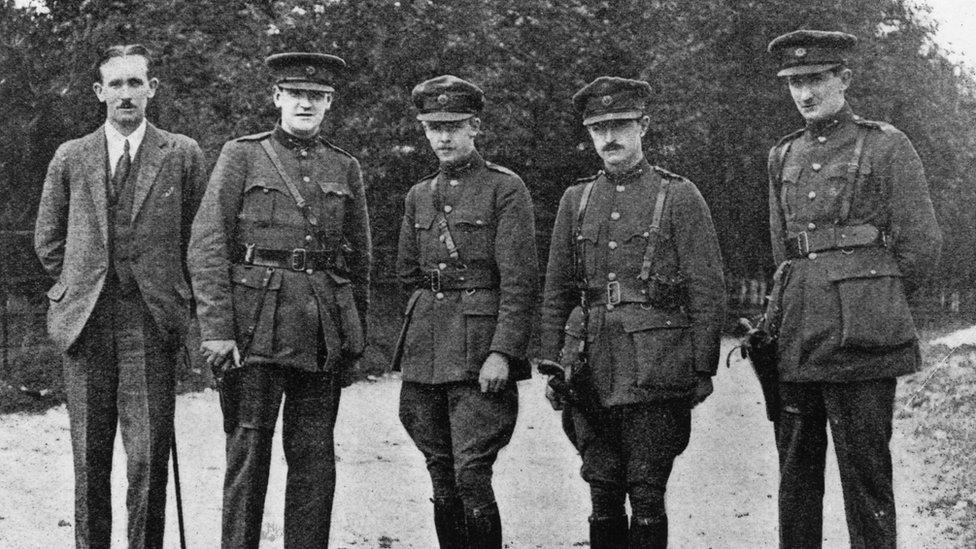
Michael Collins at the Curragh Barracks in County Kildare in 1922 with Col Dunphy, Major General Emmet Dalton (centre), Comdt-Gen P MacMahon and Comdt-Gen D O'Hegarty
The centenary of the death of Michael Collins has focused attention on some other political figures of that time, especially Emmet Dalton, the man in whose arms Collins died.
Few people from Ireland's revolutionary period led as interesting a life as Emmet Dalton - the British Army officer with a Military Cross, who was an IRA director of intelligence and movie producer.
Born in 1898, the son of an Irish nationalist father, he answered the call of John Redmond, the leader of the Irish home rule movement, and joined the Army to fight in World War One.
His father did not approve.
He rose to the rank of captain and won the Military Cross for his role in the Battle of the Somme in 1916.
It was there that he witnessed the death of the Irish nationalist MP Tom Kettle.
Much later in his life Emmet Dalton described the Battle of the Somme as "a cesspit".
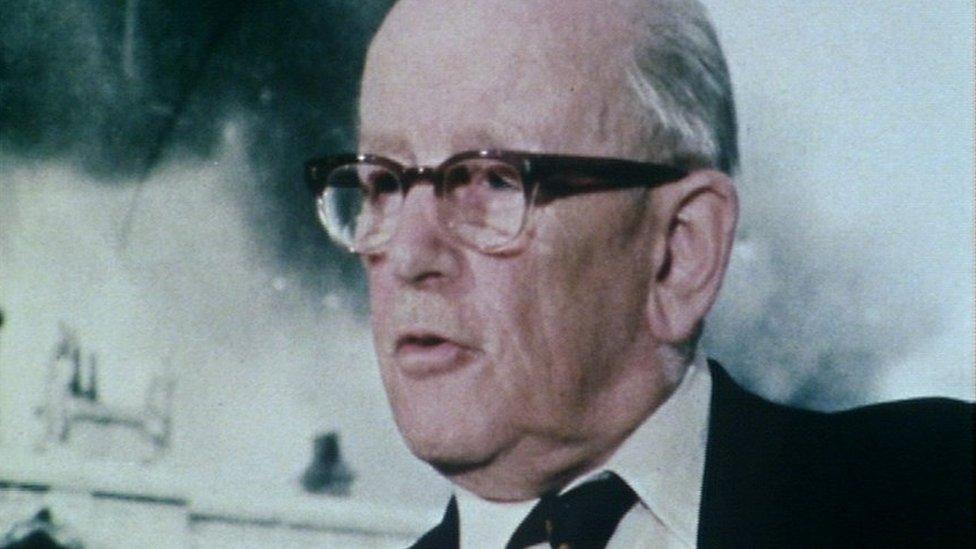
Emmet Dalton rose to the rank of captain and won the Military Cross for his role in the Battle of the Somme
He also served with the Army in the Middle East but returned to an Ireland radically changed by the Easter Rising, in which Irish republicans rose up against the British in 1916.
His brother, Charlie, had already joined the Irish Republican Army (IRA) and Emmet would soon follow in his footsteps.
The family home was frequently raided by the infamous British force known as the Black and Tans.
He had a military bearing of quiet authority and quickly came to Michael Collins' attention, especially after the daring-but-failed attempt to spring an IRA leader free from Dublin's Mountjoy Prison.
The bodyguard
He quickly rose through the IRA ranks during the Irish War of Independence against the British and became director of intelligence.
He was also involved in the Dublin-based assassination unit known as the Squad.
He accompanied Collins to the Anglo-Irish Treaty negotiations but more as a bodyguard than anything else.
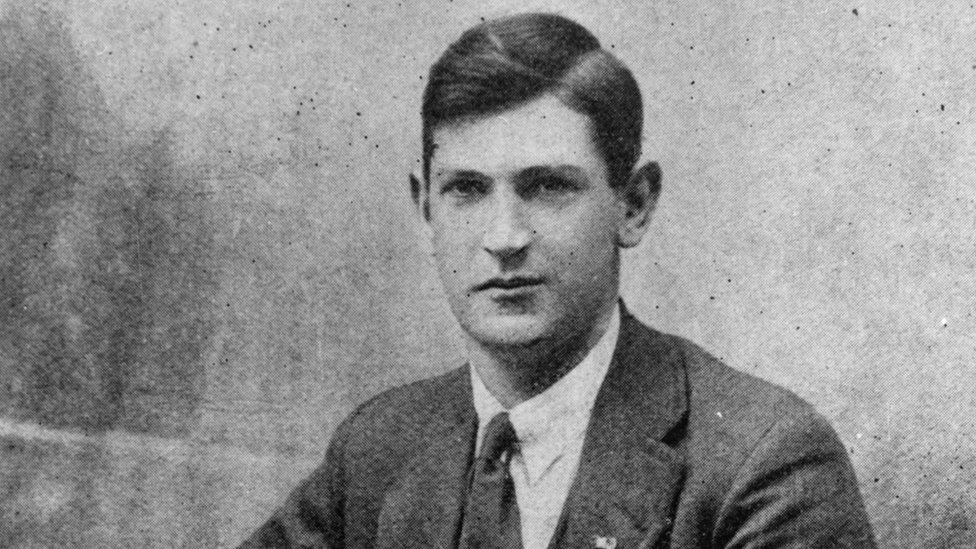
Michael Collins promoted Dalton through the ranks of the IRA
Dalton was devoted to Collins and took his side in the split over that treaty.
While Collins argued the treaty gave the new state the ability to win freedom, those republicans opposed to it could not agree to an oath to the British monarch.
Both men were in the convoy that was ambushed by republicans at Béal na Bláth in west Cork in the civil war that followed.
Dalton, who had much more practical military experience than Collins, wanted the convoy to drive on but Collins - who had been in a pub earlier - insisted on fighting.
Collins died in Dalton's arms on 22 August 1922; Dalton was only 24.
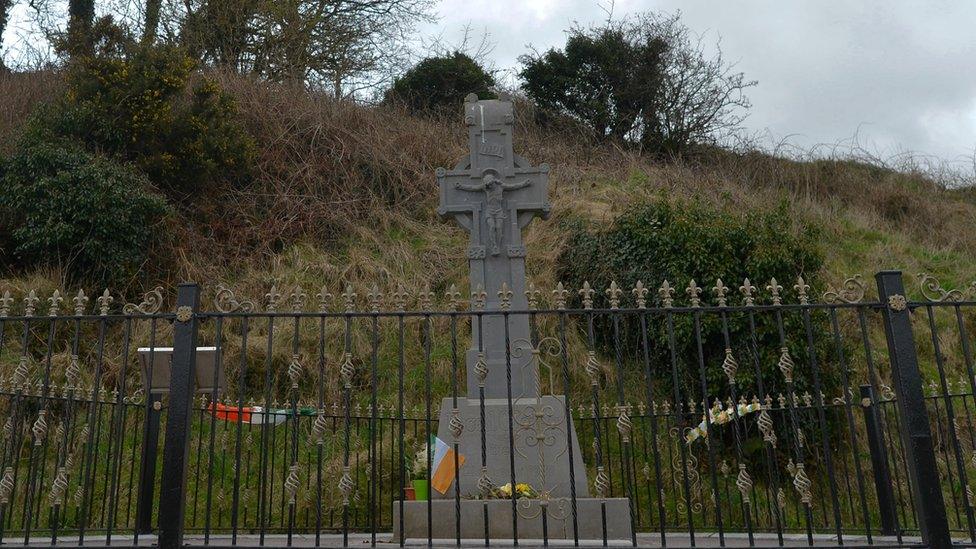
A monument was dedicated to Michael Collins in Béal na Bláth
He left the military shortly afterwards, briefly becoming the clerk of the new Seanad (Senate).
He disagreed with the new Free State government's policy of executing republican prisoners.
Those who supported the treaty would later found the Fine Gael political party and the majority of those who opposed it founded Fianna Fáil.
Out of both the Army and politics, he took refuge in alcohol for a while and made a living as a professional gambler and encyclopaedia salesman before turning his attention to movie production.
In 1958, he founded Ardmore Studios in Bray, County Wicklow.
Hollywood star
His company produced films including The Spy Who Came in from the Cold, The Blue Max and The Lion in Winter.
Long after Dalton's death, part of the Liam Neeson movie, Michael Collins, was filmed at Ardmore.
One of Emmet Dalton's five children, his daughter Audrey, later became a Hollywood star in American films and TV shows in the 1950s and 60s.
He died on his 80th birthday in 1978 and was given a military funeral but no Fianna Fáil minister or TD (member of the Irish Parliament) showed up, reflecting the still bitter legacy and wounds of Ireland's civil War.
Related topics
- Published17 March 2022

- Published9 November 2021
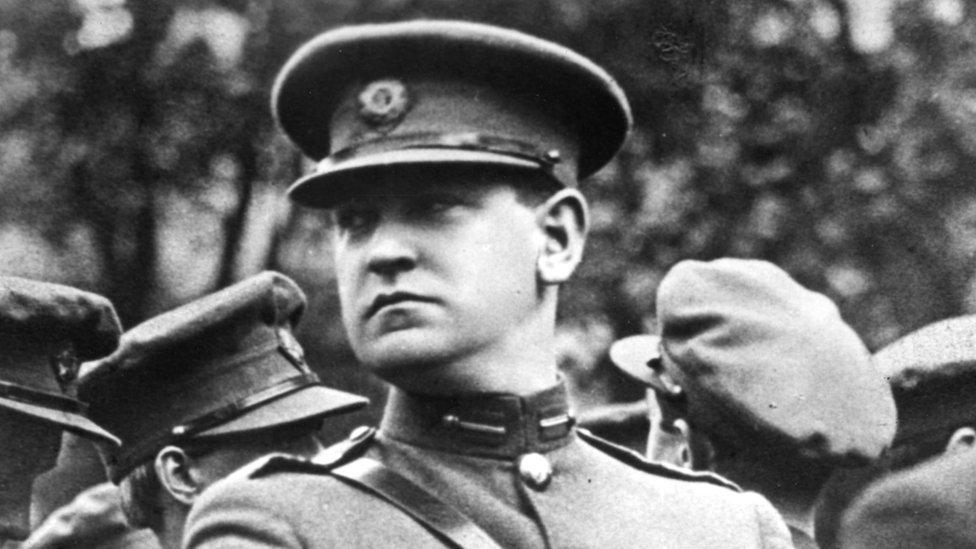
- Published28 September 2021
